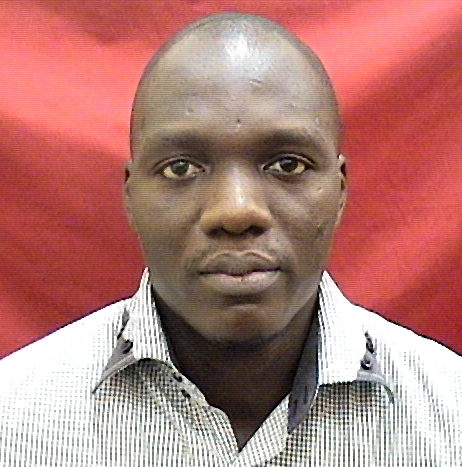Profile
Benedict Sackey is lecturer of Haematology who joined the Department of Medical Diagnostic in 2011 following 9yrs of working as Biomedical Scientist in the Department of Haematology at Komfo Anokye Teaching Hospital. Whilst working at KATH, he doubled as a Demonstrator of Haematology at KNUST from 2003-2009 and parallel taught as a tutor of Haematology at DOSONEC HealthCare Institute, Patasi-Kumasi.
He hold Bsc (Hons) in Medical Laboratory Technology and Mphil. in Clinical Biochemistry from KNUST. Additionally, He holds Professional Diploma in Project Design and Management from the Liverpool School of Tropical Medicine, UK and certificate in Newborn Screening for Sickle Cell Diseases and other Haemoglobinopathies from the School of Medicine, Federal University of Minas Gerais, Brazil.
He has considerable expertise in techniques for diagnosis of sickle cell diseases and Proficiency testing through training at Center for Disease Control, Atlanta, USA and NUPAD - School of Medicine Belo Horizonte, Brazil. He had worked with the Sickle Cell Foundation of Ghana since 2005 as Biomedical Scientist in the Clinical Laboratory Component and was appointed a member of National Technical Advisory Committee on Newborn Screening for Sickle Cell Disease in Ghana in 2010. Benedict had also worked as the laboratory manager of Garden City Hospital, Asokore Mampong from 2009-2012 and had been a member of Accreditation Teams for both the Allied Health Professional Council and the National Accreditation Board, Ghana on a number of assignments.
In 2015, he won German Academic Exchange Service (DAAD)-MoE scholarship to pursue PhD in the University of Cologne, Germany where his research thesis focused on “Elucidation of the role of DNA-damage response in the tumor microenvironment interactions and molecular characterization of a “Tropical” Chronic Lymphocytic Leukemia cohort” in the specialty of Haematological Malignancies.
His Research interest is in Haematological Cancers and Haemoglobinopathies in the areas of:
Cancer biology and immunology
A better understanding of biology and immunology of cancer cells is critical for early diagnosis and application of targeted effective treatment. Cancer cells acquire critical genomic mutations that drive tumor evolution and paralyze defense mechanisms involved in DNA damage repair, immune surveillance and apoptosis induction. A better understanding of these mechanisms could open Novel avenue for early diagnosis and effective targeted intervention,
Our research focuses on delineating molecular and cellular pathways and exploration of phenotypic changes involved in tumor evolution and intercellular cross-talks that underlies treatment failures.
DNA damage response interactions in tumor microenvironment
Loss of genomic integrity is major cause of cancer. The DNA damage response (DDR) system orchestrate complex network of integrated pathways that detect and repair genomic damage and replication challenges to restore integrity. Mutation of certain genes in DDR force tumor cells reliance on alternative pathways whose inhibition causes synthetic lethality. However activation of DDR also induces tumor cells secretions which revamp effective functions of immune phagocytic cells.
Our research focus on identifying critical DDR genes relevant to secretory phenomenon of tumor cells and explore chemo-immunotherapeutic strategies including immune checkpoint inhibition that promote effective tumor cells elimination.
Systemic and Palliative Interventions in severity/complications of Sickle cell diseases
Sickle cell disease (SCD) is a monogenic haemolytic disorder characterized by acute and chronic deterioration of organ function. The genetic cause of the disease is a mutation of the beta globin gene that result in formation of a mutant haemoglobin S (HbS) which polymerizes under low oxygen tension. HbS is most prevalent in sub-Saharan Africa with incidence of SCD ranging from 1-5% in most population. Formed HbS polymers in RBCs, promote RBC haemolysis, vascular endothelial injury and adhesion which trigger occlusion crises, ischaemia, tissue death and multi-organ failure in SCD patients.
Our research focus on understanding the molecular pathophysiology of pathways and mediators of the sickling crisis and explore both systemic and behavioral palliative measures to promote the quality of life of SCD patients.

